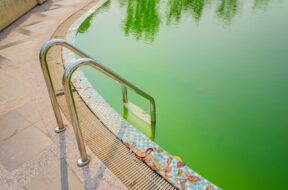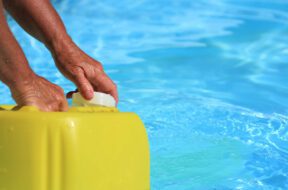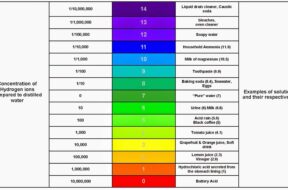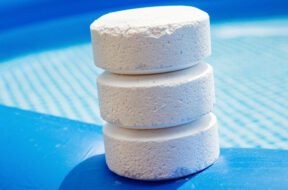
Want to learn more about algaecide? Read on to find out when to add algaecide to your pool maintenance routine and other helpful tips.
A pool heater becomes essential in extending your summertime fun into colder months. When the swimming season comes to a close and the weather becomes unpleasant to swim in, you will need to find yourself a suitable water heater. A pool heater can also be of use in the summer, if you are a pool-goer who enjoys early morning or late-night swim laps. There are several different models of pool heaters, from solar, gas/propane, to pool heat pumps. To better understand the right pool heater for your swimming pool, we have compared and contrasted the models below.
More articles on Pool Maintenance here
There are various models of solar power heaters to tap into our sun’s free energy. While some solar panels sit on the side of your pool to soak up the sun, others can be installed on the roof of your home or used to cover the swimming pool itself. Using only energy from the sun, some solar powered pool heaters are installed on the roof of your home. To heat your swimming pool, the water is pumped from your pool up to the panels located on the roof. Depending on the size of your pool and the exposure to the sun in your area, installing solar panels on your home may not be cost-effective for your setup. Alternatively, there is another model of solar powered pool heating that may be of use. Solar powered sun rings/squares are manufactured vinyl floaties designed to cover and heat your pool. The rings/squares rest on the surface of your pool and harness the sun’s vast amount of energy by trapping the heat underneath the floaty.
Gas/Propane heaters are very popular amongst pool owners. This is because of their ability to heat pools rather quickly. When considering a gas/propane pool heater as a choice for your own swimming pool, it is important to include the cost and expenses that will go toward gas/propane to run your heater. As we know, gas prices are not at a fixed rate. This means an increase in the price of gas/propane can affect your monthly maintenance budget as well as your overall experience with owning a gas pool heater.
With the advancement of technology, many gas pool heaters have been manufactured to include electronic ignition start-ups, fan-aided combustion properties, and release minimum amounts of emissions. In addition, newer gas/propane pool heaters have implemented anti-corrosion and heat-exchanging plates in order to minimize further issues in salt water pools.
Electric pool heat pumps are by far the most cost-effective. Heat pumps powered by electricity absorb heat within the surrounding atmosphere and transfer the (heated) energy back into your swimming pool. Like newer, technologically advanced gas/propane pool heaters, electric pool heat pumps include compressors and heat exchanging plates to transfer energy from the heat outside directly into your swimming pool. One thing to keep in mind when considering your investment into electric pool heaters, is how long you intend on extending your swim season. When the weather gets colder and temperatures dip lower than 50 degrees, electric heaters become inefficient in heating your pool above the temperature outside. While electric pool heaters may be the most economical choice in the market during the swimming season, they are unable to heat up your swimming pool unless the weather permits it.
What kind of pool cover is right for you?

Want to learn more about algaecide? Read on to find out when to add algaecide to your pool maintenance routine and other helpful tips.

In this quick guide, we’ll answer the question “can you over shock a pool” and unveil the factors to consider when shocking a pool.

Maintaining both pH and total alkalinity in your swimming pool is important for keeping your pool properly sanitized and non-corrosive. Total alkalinity is to pH what cyanuric acid is to free chlorine. Total alkalinity stabilizes pH levels. The ideal pool pH level is 7.4 to 7.6. The ideal total alkalinity level is 80 to 120 ppm.

The Association of Pool and Spa Professionals recommends free chlorine levels for both swimming pools and hot tubs be kept between 2.0 and 4.0 ppm. However, the Center for Disease Control recommends free chlorine stay above 1 ppm in pools and 3 ppm in hot tubs.